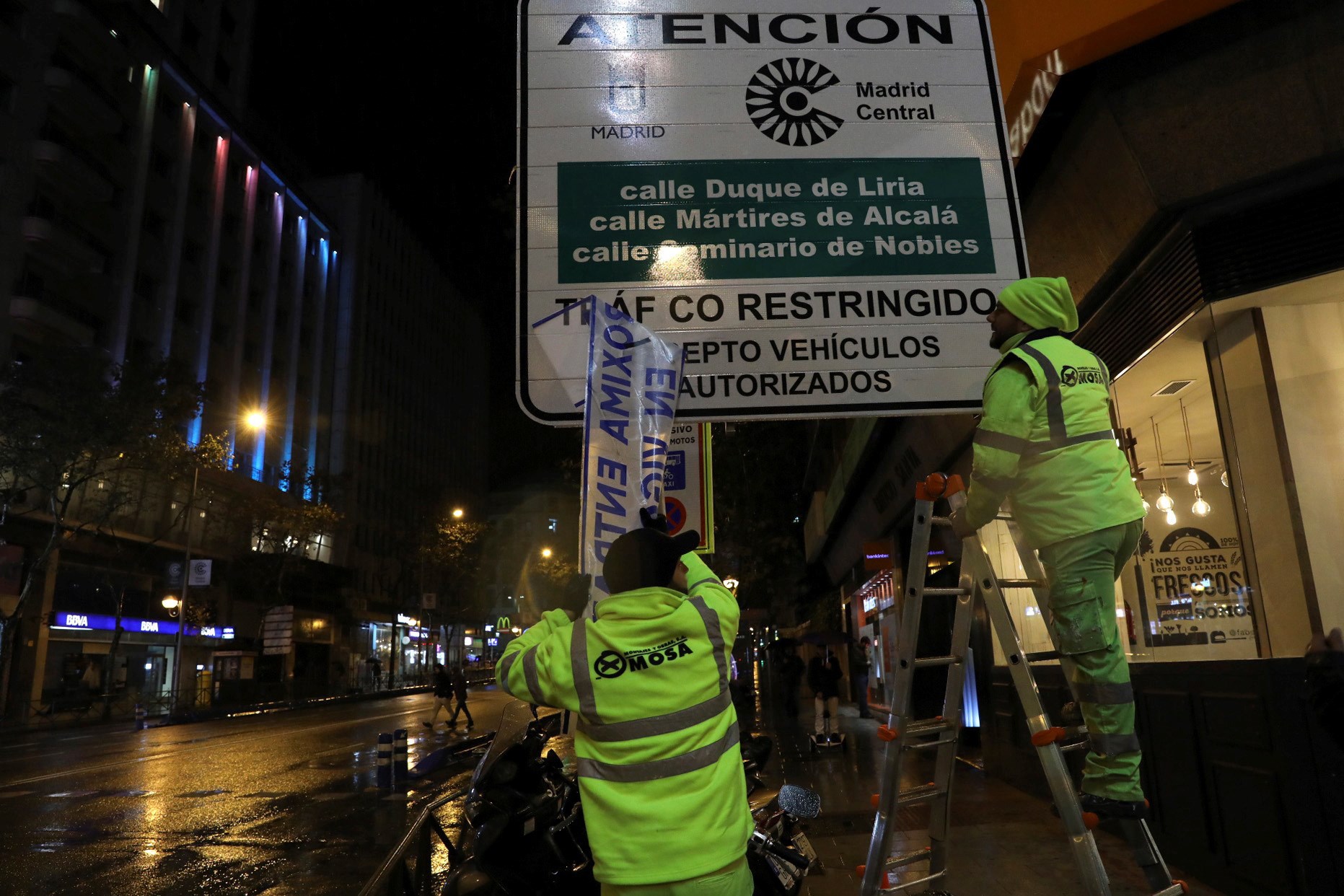
City mayor: Madrid's ban on polluting cars from its downtown area begins well
The project sets a low-emissions zone to help protect the health and wellbeing of its citizens.
Madrid's plan to become a pioneering city in the fight against pollution began well on Friday with a drop in private traffic entering its urban center, the mayor said.
The project, known as Madrid Central, sets a low-emissions zone that covers 472 hectares (1,166 acres) where all gasoline vehicles registered before the year 2000 and diesel transport recorded before 2006 are banned, was functioning as expected Manuela Carmela said.
"In this process starting today, we have lots of innovations and must remain receptive and very vigilant to put right whatever needs correcting, and what can be improved," Carmena said.
The aim is to cut nitrogen dioxide levels some 23 percent by 2020 and put people rather than fuel-burning engines at the core of transport policy.
In effect, only vehicles producing zero emissions will be allowed to drive freely in downtown Madrid, although exemptions will exist for residents living inside the low-emissions zone who will still be able to drive their older cars for a while.
When asked about a timetable to start fining those who fail to abide by the new norms, Carmena said: "no earlier than late March, early April, although it will finally depend on when the plan has been fully tested."
She said the restrictions were in accordance with the rulings of the European Commission to protect the health and wellbeing of its citizens by reducing fuel emissions.
Madrid thus joins other major global cities such as Paris, Athens and Mexico City, whose city mayors announced plans to remove diesel cars and vans by 2025.
Hamburg also became the pioneering German city to gradually ban certain older diesel vehicles from two of its main roads.










LEAVE A COMMENT:
Join the discussion! Leave a comment.